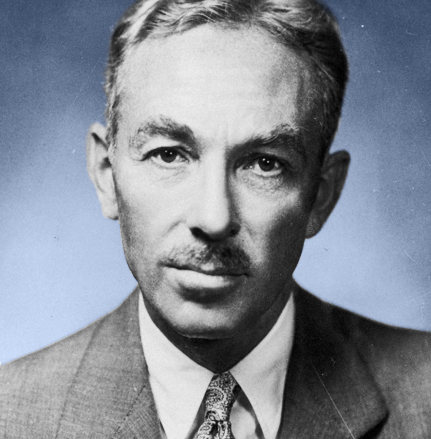
In this letter, E.B. White thanks The New Yorker fiction editor William Maxwell for his “kind words” about a story White had recently contributed to the magazine, “Letter from the East.” White, best known for his children’s books Charlotte’s Web and Stuart Little, wrote for The New Yorker over the course of six decades on topics ranging from the moon landing to the consumption of spinach. Below, White addresses Maxwell from his farm in Maine (the inspiration for Charlotte’s Web), offering anecdotes about provincial life and enclosing several tokens for Maxwell’s children, Kate and Brookie.
N. Brooklin
Thursday 29 July 1971
Dear Bill:
For your kind words in Katharine’s letter thanks. I was very pleased that you liked the piece, as I came close to abandoning it after a couple of tries. You were the first person I heard from except Shawn, and I never can tell what Bill really thinks about a piece, he is so polite. One more barnyard story from me and the magazine will have to change its name to The Rural New Yorker.
My birds are shedding now, and I’m enclosing two feathers from the young gander; you can make them into pens for Kate and Brookie so they will grow up to be writers. Am also enclosing three snapshots, which can be thrown away.
The goose I called Liz in the story hatched eight goslings a week ago. They were immediately adopted by their aunt and uncle, leaving their true parents with nothing but their memories. This was more than I could take in the way of domestic injustice, so I threw the young gander and Apathy in the clink and restored the baby geese to their mother and father. I run a complicated shop here — it makes Baby Lenore seem simple.
One of the strange things that happened with the first brood about which I wrote was a return engagement between the old gander and the young gander. This took place on the day when the little family was making its first trip to the pond — always a hazardous time on account of the cattle. I watched their progress down through the lane, then saw that the old gander, who had been nursing his wounds and broken pride for three or four days, was also watching their progress, only he was already down there in the pasture. He has, after all, had years of experience with cattle, and apparently the minute he realized that the young male who had deposed him was about to undertake the job of escorting the goslings through enemy lines, all his old wrath returned. He waited till the whole troupe came through the pasture bars, whereupon he threw himself on the young gander, beat the daylights out of him, reoccupied the throne, and stood off the steers and heifers while the goose and goslings hustled to the pond. As soon as they were safely afloat, he joined them. Oddly enough, so did the young gander after he had dusted himself off, and there was a temporary truce during the swimming hour. When the hour was up, the old boy escorted everybody back to the bars and the safety of the lane, and then returned into exile, reinstating the young leader. It was something. I would never have believed it if I hadn’t witnessed the whole thing from start to finish. That old expression crazy-as-a-goose is invalid, without meaning, and void.
I didn’t intend to inflict more of my weird tales on you. Just wanted to thank you. Best to Emmy and the girls.
Yrs,
Andy
From Letters of E.B. White. Edited by Dorothy Lobrano Guth. New York: Harper & Row, 1976. pp. 31
FURTHER READING
Listen to Blake Elskin’s podcast about visiting the E.B. White House in Brooklin, Maine, the location of which was kept mostly secret during White’s lifetime, but has now been added to the National Registry of Historic Places.
Read a letter from E.B. White explaining how his experiences on his farm inspired the story of Charlotte’s Web.


